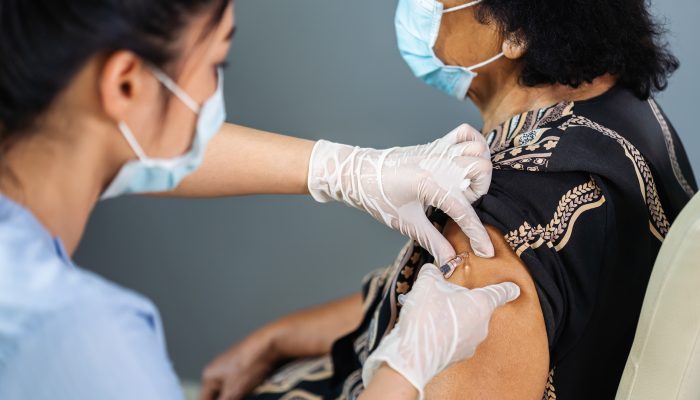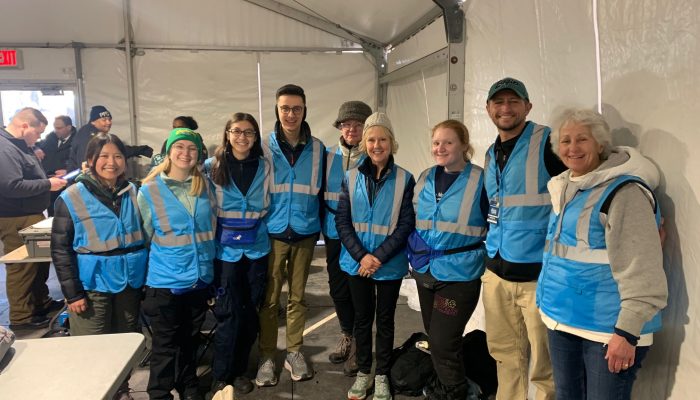It’s official. COVID-19 is no longer a national public health emergency. It ended on May 11, just six days after the World Health Organization announced that it was no longer a global public health emergency.
Does that mean the pandemic is over? After more than three long years, can we finally go back to the way things were? Well, no, not quite.
By ending the national and global public health emergencies, health officials are not saying the pandemic is over. But they are saying things have improved enough that we can move toward a new phase of the pandemic.
For a little more than a year now, the pandemic has been on a downward trend. Deaths due to COVID-19 have decreased and immunity to the disease has increased because of testing and vaccinations.
We’re hopeful that COVID-19 is becoming more predictable and less disruptive. But we’re not there yet. We encourage you to stay safe and remain on guard. Yes, the end of the national and global public health emergencies are things to celebrate. But with caution.
Continue to test for COVID-19 and isolate if you test positive. Get vaccinated if you haven’t already. And if you have, follow up by getting COVID-19 boosters. Things are improving and will continue to improve if we all do our part and follow that course.
Finding vaccines
The federal government has a stockpile of vaccines purchased from pharmaceutical companies. The end of the public health emergency should have little effect on vaccine access. Supply of the federally purchased vaccines is expected to last through the summer of 2023.
Once the federal supply runs out, private insurance companies, Medicaid/Medicare Part B, and the Children’s Health Insurance Plan (CHIP) are required to cover vaccines for people they insure. Those who are uninsured will still be able to find free or low-cost vaccines.
If you have private or marketplace insurance
All forms of health insurance will cover COVID-19 vaccines, as long as you stay in network. If unsure of where you are in-network, call the customer service number on the back of your insurance card.
If you’re a Medicare or Medicaid beneficiary
Medicare will continue to cover COVID-19 vaccines, including boosters, at no cost for those enrolled in Part B or Part D.
Medicaid (Medical Assistance) and CHIP programs are required to cover COVID-19 vaccines at no cost. To locate vaccination locations near you, visit vaccines.gov.
If you’re uninsured or underinsured
You can still get free COVID-19 vaccines at the following City health centers.
| Vaccination location | Street address | ZIP code | How to find it |
|---|---|---|---|
| Health Center 3 | 4219 Chester Ave. | 19104 | Enter on Chester Ave. |
| Berks Street | 2001 W. Berks St. | 19121 | Enter on Berks St. |
| Health Center 6 | 301 W. Girard Ave. | 19123 | Trailers behind building on N. 3rd St. |
| Health Center 10 | 2230 Cottman Ave. | 19149 | Enter on the left side of the building |
Walk-in hours are Monday, Wednesday, Thursday, and Friday, from 8 a.m. – 1 p.m.
If you have symptoms, you must wear a mask. Bring your ID and your insurance card, if you have one.
Getting a COVID-19 test
Some free or low-cost tests are still available.
- If you’re sick and have private insurance or Medicare, your insurance should cover the test with a doctor’s referral.
- You can request COVID-19 tests at the preferred provider of your health plan. Call the number on the back of your insurance card for specific details on your plan’s copays and preferred providers.
- Medicare Part B will continue to cover lab-based testing with a physician’s prescription. Medicaid will cover free over-the-counter tests until September 2024.
- Visit a testing site near you. Some sites require you to have a doctor’s referral, have symptoms, or make an appointment. Some may require that you be in the provider’s insurance network. Call ahead to make sure you have information and hours for the site.
- Visit a resource hub. Five resource hubs will continue to give out free at-home test kits until supplies are gone. They’re located at:
| Resource hub location | Street address | ZIP code |
|---|---|---|
| Mi Salud Wellness Center | 200 E. Wyoming Ave. | 19120 |
| Bethany Baptist Church | 5747 Warrington Ave. | 19143 |
| The Shoppes at La Salle | 5301 Chew Ave. | 19138 |
| Mt. Enon Baptist Church | 500 Snyder Ave. | 19148 |
| Whitman Plaza | 330 W. Oregon Ave. | 19148 |
Finding treatment for COVID-19
Treatment can help you avoid serious illness, hospitalization, or even death from COVID-19. Contact your primary care provider to discuss whether you would benefit from a treatment like Paxlovid or Lagevrio.
- If you don’t have a primary care provider, you can visit an urgent care or a Test-to-Treat location.
- You can also find free or low-cost care using our primary care finder.
People who are enrolled in Medicare or Medicare Part D may have to pay a small amount (co-pay) for treatment.
If you have Medicaid or CHIP, medications will continue to be available free of cost for the rest of 2023. That will likely change in 2024.
If you’re experiencing an emergency, go to the nearest emergency room.




